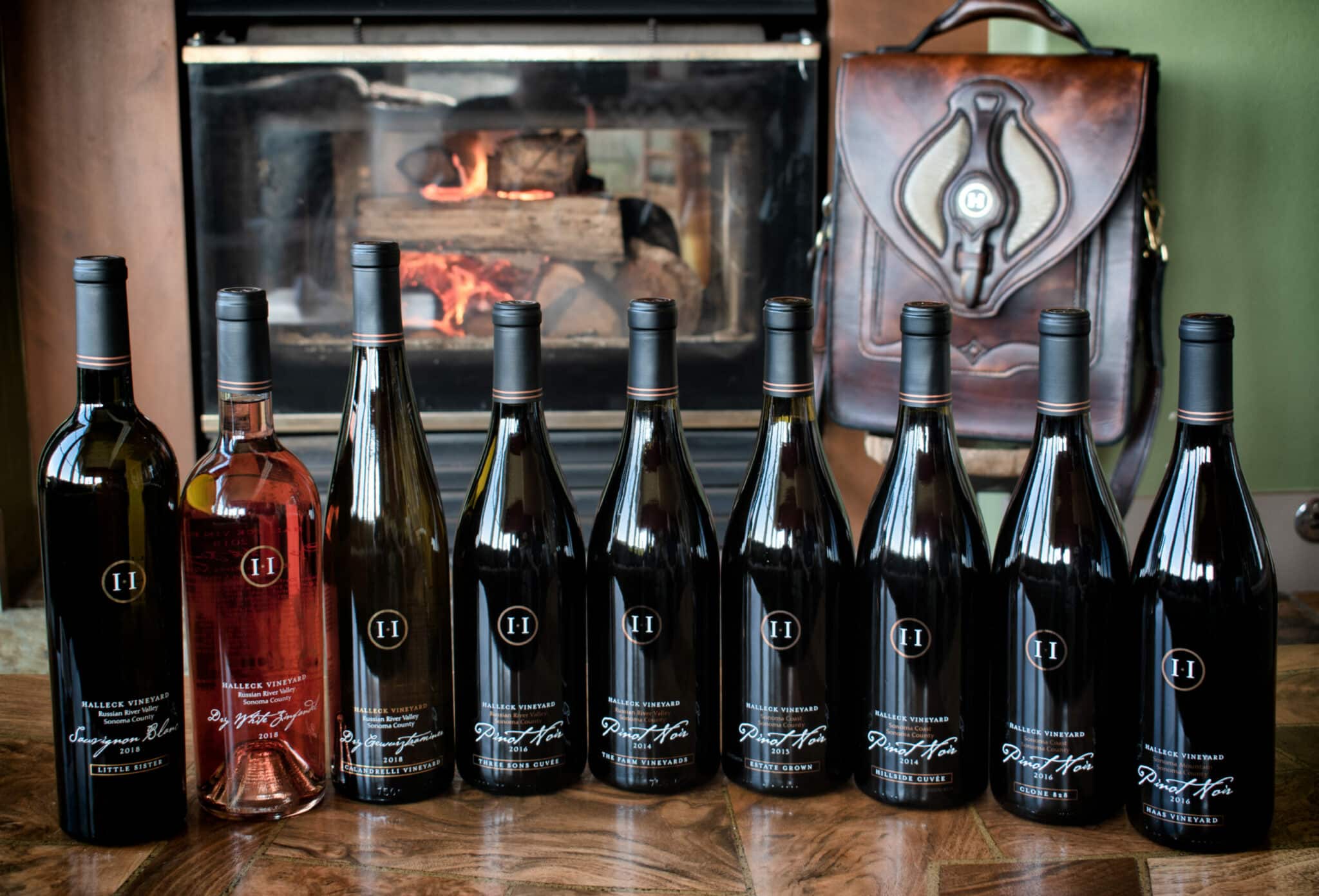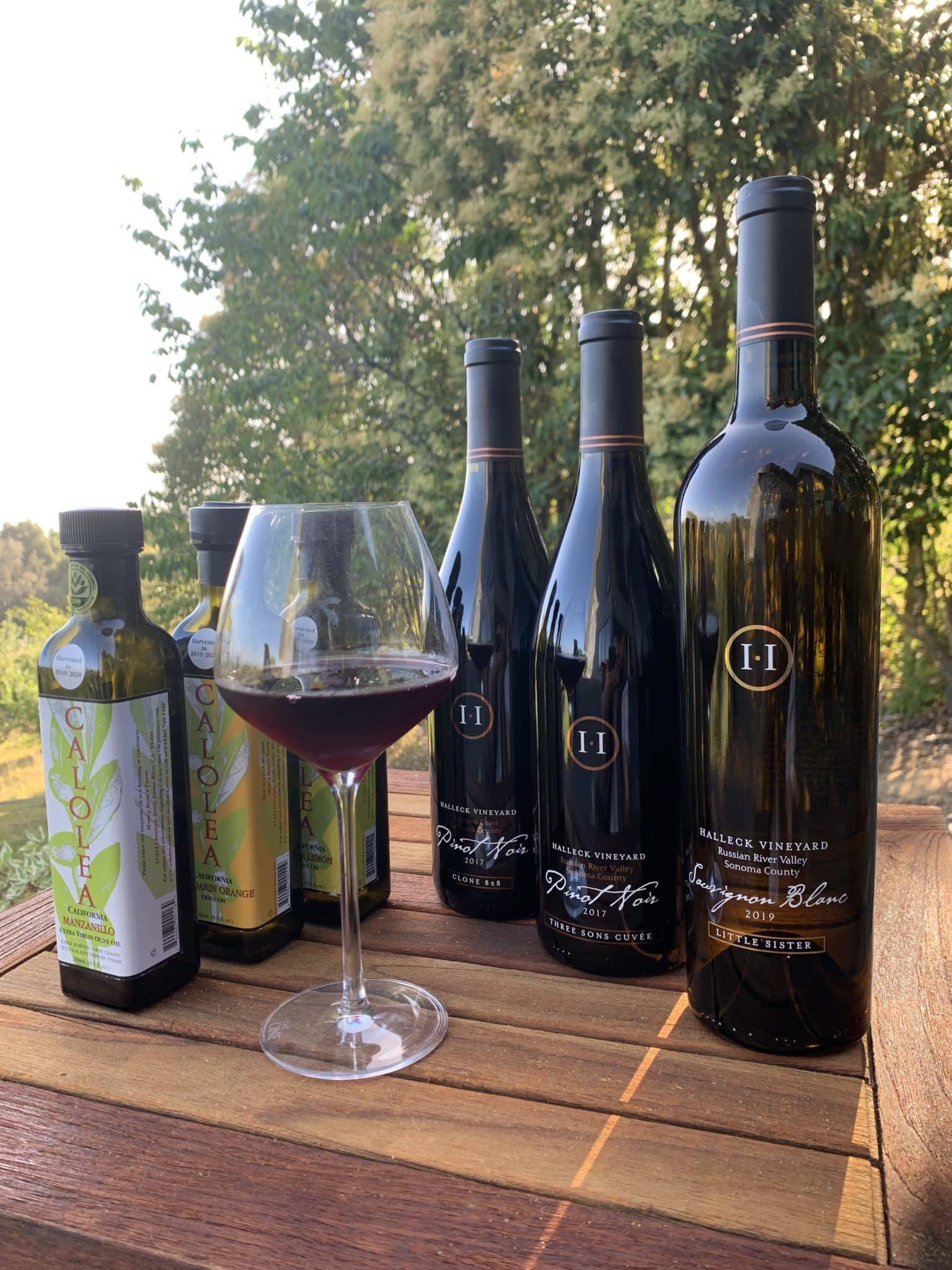Best Pinot Noir Wineries In Sebastopol - Wineries In The Sebastopol Region
Best Pinot Noir Wineries In Sebastopol - Wineries In The Sebastopol Region
Blog Article
Wineries With Unique Gamay Wines - Vineyard Tours In Sebastopol
Visiting a winery for a wine tasting may be an enchanting experience, particularly when you understand how to maximize the opportunity with tasting notes. These notes serve as a guide to understanding the complexities of the wines you sample and assist in forming a deeper reference to each pour. Using tasting notes can rework your experience, permitting you to savor not simply the style but also the story behind every bottle.
Every wine has a novel profile influenced by grape selection, terroir, and winemaking techniques. Understanding these parts can enhance your appreciation of the wine. When you may be given a tasting menu or a flight of wines to sample, take the time to learn by way of any descriptions offered (Wineries Known For Sustainable Practices In Sonoma). This initial overview can set the tone and expectations on your tasting experience.
Start your wine tasting by observing the wine in your glass. The color can reveal lots in regards to the wine’s age and varietal. Take notes on the hue, clarity, and viscosity. A well-structured tasting note typically includes this visual evaluation as it varieties the inspiration of your evaluation. While it might appear trivial, the visual aspect is crucial in wine tasting.
Wineries Offering Virtual Wine Tastings - Wine Tasting At Sonoma Vineyards
After your visual evaluation, it is time to take a mild whiff. Swirl the wine in your glass to aerate it, releasing its aroma. This is the place tasting notes turn out to be notably valuable. Make notes concerning the totally different scents you detect—fruits, spices, or floral hints. Figuring Out these aromas will assist you to put words to the intrinsic complexities of the wine you are sampling.

The next crucial step is the tasting itself. Take a small sip and let the wine roll over your palate. Note the flavors you experience. Are they sweet or tart? Where does your palate detect each flavor? Some wines might present quick sweetness adopted by a tannic end. Use your tasting notes to document these layers, making a roadmap of your sensory experience.
Contemplate additionally the mouthfeel of the wine as you taste. Is it clean, crisp, creamy, or perhaps tannic? This textural quality considerably influences the general enjoyment and impression of the wine. Observing the mouthfeel can reveal the standard and craftsmanship behind the winemaking process.
It's helpful to check completely different wines as you style them. If you're sampling a flight with contrasting varietals, make a remark of the differences you understand. How does the acidity range from one wine to another? Which wine feels fuller, and which is extra refreshing? This comparative exercise deepens your understanding and helps sharpen your analytical skills.
Eco-Friendly Wineries In Sonoma County - Sonoma Wine Tasting Spots

Interact with the winery employees while tasting. Knowledgeable hosts often share insights in regards to the vineyard's history, the particular vintage, or the winemaking philosophy, enriching your appreciation of the wine. Do Not hesitate to ask questions that pique your interest primarily based on your tasting notes. Many hosts take pleasure in discussing their wines and can offer a wealth of information that isn’t readily available from printed supplies. Vineyard Picnic Spots In Sonoma Valley.
Hold in thoughts the seasonality of wines as you our website style. Totally Different wines evoke diversified moods and pair nicely with distinct culinary experiences. Take notes on the way you may take pleasure in a particular wine with food. This not solely provides context to your tasting notes but additionally aids future selections and purchases.
Another helpful tip while utilizing tasting notes at a winery is to report your impressions immediately. As wines can blend and create a uniform flavor reminiscence, jotting down your thoughts promptly ensures a extra accurate reflection of your experience. Use adjectives that resonate with you, crafting a private vocabulary to describe each wine based on your preferences.
After finishing the tasting, evaluate the notes you’ve taken. Mirror on which wines stood out to you and why. This reflection reinforces your tasting experience and highlights what you may seek in future purchases. If you've got famous specific aromas or flavors that captivated you, this information empowers you to decide out wines that align with your palate.
Wineries With Unique Tasting Experiences - Enjoying Wine In Sebastopol
Wine tasting can also function an opportunity for socializing. Sharing your tasting notes with companions can ignite engaging discussions on flavors, preferences, and impressions. This communal facet of wine tasting usually enhances the experience, cementing lasting reminiscences you could recall with a cup of wine in hand.
In conclusion, utilizing tasting notes at a winery wine tasting can considerably improve your experience. By observing the visible elements, aromas, flavors, mouthfeel, and even the tales behind the wines, you create a wealthy tapestry of notes that may guide your future wine experiences. Partaking with the staff, comparing wines, and reflecting in your impressions will deepen your appreciation for the art of winemaking. Each tasting is an opportunity to find and connect with wines in exciting new methods. With practice, your tasting notes will evolve, changing into a cherished element of your wine journey.
Wineries With Unique Gamay Wines - Sonoma Wine Retreats
- Start by familiarizing yourself with the winery's tasting notes; they often describe the wine’s aroma, flavor profile, and finish, providing a useful framework.
- Use your senses of sight and smell earlier than tasting; swirl the wine in your glass, observe its color, and inhale its bouquet to seize the wine's preliminary characteristics.
- When tasting, take a small sip and let the wine coat your palate; give consideration to the first flavors and any secondary notes that may emerge, such as fruit, spice, or earthiness.
- Pay attention to the texture and mouthfeel of the wine; is it clean, tannic, creamy, or crisp? This facet can significantly enhance your understanding of the wine.
- Evaluate the tasting notes with your sensory experience, noting any similarities or discrepancies, which can deepen your appreciation of each wine’s complexity.
- Consider the wine’s aging potential by analyzing its structure and steadiness; some wines could also be pleasant now, whereas others may evolve beautifully over time.
- Take notes in the course of the tasting; recording your impressions can help you remember every wine better and refine your palate for future tastings.
- Have Interaction with the tasting staff; ask questions concerning the wine manufacturing process, grape varieties, and the specific notes you are detecting to enhance your data and experience.
- Discover pairing ideas alongside your tasting; understanding which foods complement the wine can enrich each the tasting experience and your appreciation for the wine's nuances.
- Respect varying preferences amongst your group; wine tasting is subjective, and inspiring open dialogue about individual tastes can result in a more gratifying and informative experience.undefinedWhat are tasting notes, and why are they necessary at a wine tasting?undefinedTasting notes are descriptions of the flavors, aromas, and overall impressions of a wine. They are necessary as a result of they guide your palate and improve your understanding of the wine's characteristics, serving to you respect completely different varieties and styles.
How should I take notes during a wine tasting?undefinedYou ought to give attention to key components similar to aroma, flavor, physique, acidity, and finish. Use a structured format or template to categorize your ideas and write down your impressions instantly after tasting. This helps you bear in mind your ideas later.
Am I Able To use my very own words to explain a wine, Visit This Link or should I stick to plain tasting terms?undefinedYou can completely use your personal words to describe a wine. Whereas standard tasting phrases can help convey specific qualities, personal descriptors add authenticity to your notes and can make your wine experience extra enjoyable and relatable.
Ought To I concentrate on particular flavors within the wine or the general experience?undefinedEach features are necessary. Whereas particular flavors help you establish the unique characteristics of a wine, the general experience encompasses how all elements combine—creating a more holistic understanding of the wine.
Innovative Wine-Making Techniques In Sonoma Valley - Sonoma Vineyard Tours
What if I cannot determine certain aromas or flavors throughout a tasting?undefinedIt’s widespread to have problem identifying particular tastes or scents. Don’t hesitate to ask for help or guidance from the employees on the winery. They can present insights and assist refine your palate over time by way of practice.
How can I use tasting notes to choose wines in the future?undefinedBy reviewing your tasting notes, you'll be able to determine your preferences and trends in your wine selections. This permits you to select wines that align with your palate in future tastings and purchases, making your experience extra gratifying.
Is it appropriate to compare wines throughout a tasting?undefinedSure, comparing wines could be helpful. It helps spotlight the variations in flavor profiles and attributes, allowing you to develop a deeper appreciation and understanding of every wine's distinctive qualities.
What ought to I do if I disagree with the tasting notes offered by the winery staff?undefinedDisagreement is a pure a part of wine tasting! Use it as a possibility to debate your impressions with the staff; they will present further context or details about the wine, which can enrich your experience.
Wineries With Sustainable Practices - Vineyards Near Sebastopol
How ought to I manage my tasting notes after the event?undefinedAfter the tasting, manage your notes by wine kind, producer, or personal preference. Think About creating a digital or bodily journal which could be referenced for future tastings and wine alternatives, making it easier to recall your experiences. Report this page